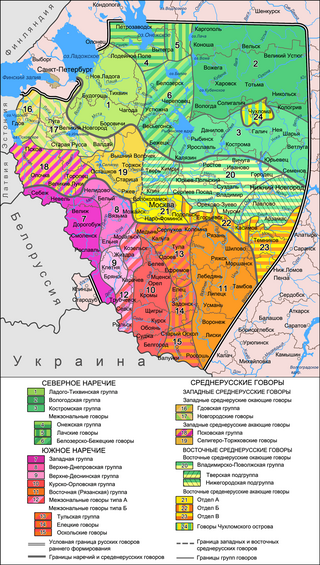I was recently thinking about an alt hist TL where the Mongol Empire as we know never forms and one of the key points of such TL is the repercussion in Russia, specifically the Kievan Rus'. I think it's most likely that the Rus' countries eventually completely split apart and each goes on their way independently, with perhaps the center of power switching from South (Kiev) to North (Novgorod, Vladimir-Suzdal, etc), and I also think Poland would have the time of its life expanding east in TTL, probably absorbing most parts of the West of Rus' into its sphere of influence. With all that laid out, there some safe assumptions that can be made:
1- The East Slavic Languages would still split into Russian and Ruthenian and evolve accordingly;
2- Russia most likely doesn't form out of the Northeastern part of Kievan Rus', with various independent duchies/principalities.
3- We have a Russia more connected with the rest of Europe.

(For the sake of illustrating, here's what Russia currently looks like by the year of 1789 in TTL)
Now, I was thinking to myself: Would those countries have an impact in the development of the Russian language? Specifically, would the East Slavic language split into more languages than in OTL? I'd like to hear your thoughts on the matter.
1- The East Slavic Languages would still split into Russian and Ruthenian and evolve accordingly;
2- Russia most likely doesn't form out of the Northeastern part of Kievan Rus', with various independent duchies/principalities.
3- We have a Russia more connected with the rest of Europe.
(For the sake of illustrating, here's what Russia currently looks like by the year of 1789 in TTL)
Now, I was thinking to myself: Would those countries have an impact in the development of the Russian language? Specifically, would the East Slavic language split into more languages than in OTL? I'd like to hear your thoughts on the matter.
